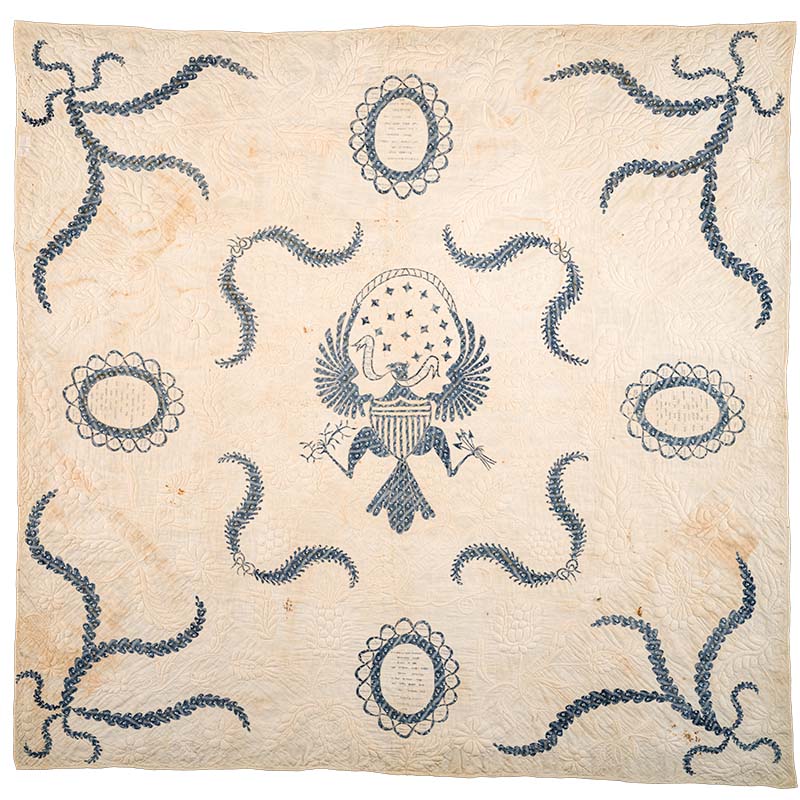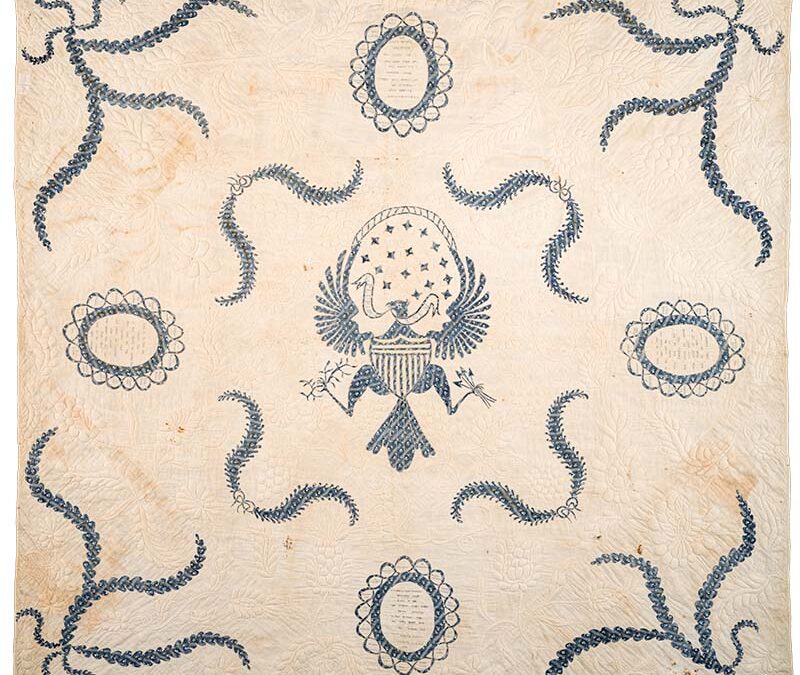
| Maker | Rebecah Foster |
| Date of Creation | 1808 |
| Location | Nashville, Davidson County, Tennessee |
| Materials | Embroidered, appliquéd, and quilted linen with cotton batting; linen silk thread |
| Institution | Tennessee State Museum |
| Credit Line | Tennessee State Museum |
| Accession Number | 78.92.1 |
| Photo Credit | Tennessee State Museum |
This quilt signed by Rebecah Foster and dated October 5, 1808, is the earliest dated Tennessee quilt known. Details about its maker’s life beyond her association with Nashville remain elusive. However, this quilt reflected Foster’s patriotism and knowledge of contemporary styles. In this piece, she followed quilt design fashion with a large composition for the center of the bed, appliquéd in printed fabric and enhanced with virtuoso embroidery and complex quilting. She also expressed enthusiastic patriotism at a time when U.S. relations with Great Britain were particularly strained, leading to the War of 1812. Eagles were a common patriotic decoration in the early 1800s. Instead of 13 stars, the quilt’s central U.S. coat of arms with the eagle has 17, the number of states in 1808. The states’ names are embroidered around the ovals with verses. While Foster was making her quilt, the United States imposed an embargo on British imports (December 22, 1807-March 1, 1809). The appliquéd blue East-Indian trade fabric, likely imported by U.S. ships, may also be a patriotic reference. The patriotic verses in the ovals are Americanized versions of earlier writing praising Britain. The first stanza is from Andrew Kippis (1725–95), and the second was written by Joseph Addison (1672–1719) in 1701: “Long as the stars their courses run Or man behold the circling son May God o’er fair Columbia reign and crown her counsels with success with peace and joy her Eagle bless And all her sacred rights maintain. O Liberty thou Goddess Heavenly bright Profuse of bliss and pregnant with delight Eternal pleasures in thy presence reign And smiling plenty lead thy wanton train. Rebecah Foster Nashville October 5, 1808.”

